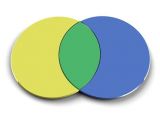Queer: Difference between revisions
The Admins (talk | contribs) |
The Admins (talk | contribs) No edit summary |
||
| Line 1: | Line 1: | ||
{{Template:Adj}} | {{Template:Adj}} | ||
'''[[Wikipedia:Queer|Queer]]''' is an umbrella term for people whose sexual desires or gender identity/expression fall outside whatever is deemed to be normative or politically acceptable in mainstream society. | '''[[Wikipedia:Queer|Queer]]''' is an umbrella term for people whose sexual desires or gender identity/expression fall outside whatever is deemed to be normative or politically acceptable in mainstream society. In today's western world, it is therefore incorrectly assumed to be a shorthand way of demarcating a mainstream identity that is simply not heterosexual or [[Wikipedia:cisgender|cisgender]]. In some instances, there is an ''added'' caveat, namely that [[Validity Policing|some homosexual and transsexual people]] may be ''excluded'' from queerness on the basis of politically unacceptable desires, for example "[[chronophilia]]" or "[[paraphilia]]". This [[Rainbow Revisionism|revisionist definition]] of ''queerness'' is highly visible in online communities following the mainstreaming of the LGBTQ+ Movement, but was seldom seen prior. | ||
Originally meaning 'strange' or 'peculiar', queer came to be used pejoratively against those with same-sex desires or relationships in the late 19th century. Beginning in the late 1980s, queer activists, such as the members of Queer Nation, began to reclaim the word as a deliberately provocative and politically radical alternative to the more [[Assimilationism|assimilationist]] branches of the LGBT community. This use of the term ''queer'', | Originally meaning 'strange' or 'peculiar', queer came to be used pejoratively against those with same-sex desires or relationships in the late 19th century. Beginning in the late 1980s, queer activists, such as the members of Queer Nation, began to reclaim the word as a deliberately provocative and politically radical alternative to the more [[Assimilationism|assimilationist]] branches of the LGBT community. This original use of the term ''queer'', has more similarities with way that anti-assimilationist [[Paraphilia|paraphiles]] currently use the term ''paraphile'', than the way present-day gay men use the term ''queer'' itself. | ||
In the 21st century, queer became increasingly used to describe a broad spectrum of non-normative sexual or gender identities and politics. Academic disciplines such as [[Queer Theory]] and Queer Studies share a general opposition to [[Wikipedia:gender binary|binarism]], normativity, and a perceived lack of [[Wikipedia:intersectionality|intersectionality]]. | In the 21st century, queer became increasingly used to describe a broad spectrum of non-normative sexual or gender identities and politics. Academic disciplines such as [[Queer Theory]] and Queer Studies share a general opposition to [[Wikipedia:gender binary|binarism]], normativity, and a perceived lack of [[Wikipedia:intersectionality|intersectionality]]. | ||
| Line 13: | Line 13: | ||
*[[Queer Theory]] | *[[Queer Theory]] | ||
:*[[Michel Foucault]] - Theorist. | :*[[Michel Foucault]] - Theorist. | ||
:*[[ | :*[[Richard Yuill]] - Theorist. | ||
:*[[Gayle Rubin]] - Theorist. | :*[[Gayle Rubin]] - Theorist. | ||
:*[[No Future: Queer Theory and the Death Drive]] - Critical essay. | :*[[No Future: Queer Theory and the Death Drive]] - Critical essay. | ||
Revision as of 19:06, 26 March 2023
 | ||||||
| NewgonWiki's series on MAP culture war and war of adjacency | ||||||
|---|---|---|---|---|---|---|
|
| ||||||
| "Normalization" | "Groomer" | Trans Kids Validity Policing | Lolicon Debate MAP & LGBT Alliances | Proship Pedophobia | Vigilantism | Moral panic Activist model | Feminism | Queer Ageism | Censorship | Hoax pedophilia Anti | Pro-recovery | Alternative Initialism Transage | Kinky Kids | Assimilationism |
||||||
|
| ||||||
| Template: Adj - This template |
Queer is an umbrella term for people whose sexual desires or gender identity/expression fall outside whatever is deemed to be normative or politically acceptable in mainstream society. In today's western world, it is therefore incorrectly assumed to be a shorthand way of demarcating a mainstream identity that is simply not heterosexual or cisgender. In some instances, there is an added caveat, namely that some homosexual and transsexual people may be excluded from queerness on the basis of politically unacceptable desires, for example "chronophilia" or "paraphilia". This revisionist definition of queerness is highly visible in online communities following the mainstreaming of the LGBTQ+ Movement, but was seldom seen prior.
Originally meaning 'strange' or 'peculiar', queer came to be used pejoratively against those with same-sex desires or relationships in the late 19th century. Beginning in the late 1980s, queer activists, such as the members of Queer Nation, began to reclaim the word as a deliberately provocative and politically radical alternative to the more assimilationist branches of the LGBT community. This original use of the term queer, has more similarities with way that anti-assimilationist paraphiles currently use the term paraphile, than the way present-day gay men use the term queer itself.
In the 21st century, queer became increasingly used to describe a broad spectrum of non-normative sexual or gender identities and politics. Academic disciplines such as Queer Theory and Queer Studies share a general opposition to binarism, normativity, and a perceived lack of intersectionality.
The queerness of MAPs (particularly heterosexual MAPs) is a point of contention both inside, and outside their community. Some MAPs refuse to use the term, or associate with it.
See also
- Michel Foucault - Theorist.
- Richard Yuill - Theorist.
- Gayle Rubin - Theorist.
- No Future: Queer Theory and the Death Drive - Critical essay.
- Official Encyclopedia
- Gay
- Queer Theory
- Terminology
- Terminology: Academic
- Terminology: MAP
- Terminology: Popular
- History & Events
- History & Events: British
- History & Events: American
- History & Events: International
- History & Events: 1990s
- History & Events: 1980s
- History & Events: 1950s
- History & Events: 19th C
- Countries and Cultures
- Countries and Cultures: Historical